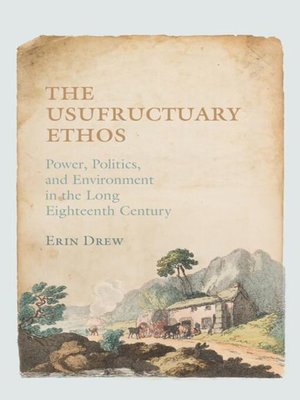The Usufructuary Ethos
ebook ∣ Power, Politics, and Environment in the Long Eighteenth Century
By Erin Drew

Sign up to save your library
With an OverDrive account, you can save your favorite libraries for at-a-glance information about availability. Find out more about OverDrive accounts.
Find this title in Libby, the library reading app by OverDrive.



Search for a digital library with this title
Title found at these libraries:
| Library Name | Distance |
|---|---|
| Loading... |
Who has the right to decide how nature is used, and in what ways? Recovering an overlooked thread of seventeenth- and eighteenth-century environmental thought, Erin Drew shows that English writers of the period commonly believed that human beings had only the "usufruct" of the earth—the "right of temporary possession, use, or enjoyment of the advantages of property belonging to another, so far as may be had without causing damage or prejudice." The belief that human beings had only temporary and accountable possession of the world, which Drew labels the "usufructuary ethos," had profound ethical implications for the ways in which the English conceived of the ethics of power and use. Drew's book traces the usufructuary ethos from the religious and legal writings of the seventeenth century through mid-eighteenth-century poems of colonial commerce, attending to the particular political, economic, and environmental pressures that shaped, transformed, and ultimately sidelined it. Although a study of past ideas, The Usufructuary Ethos resonates with contemporary debates about our human responsibilities to the natural world in the face of climate change and mass extinction.







